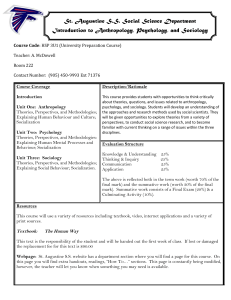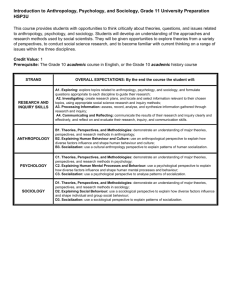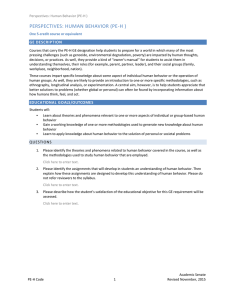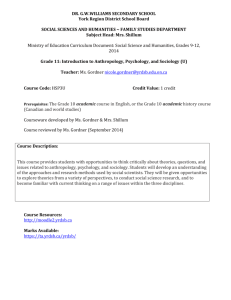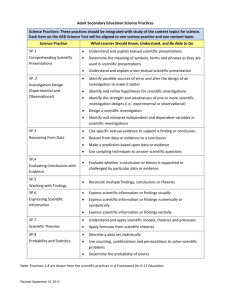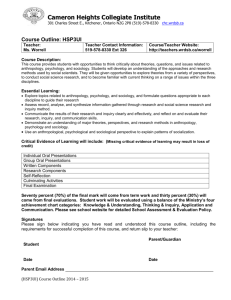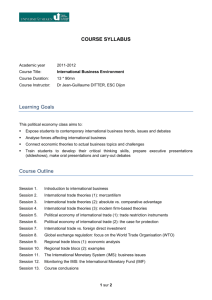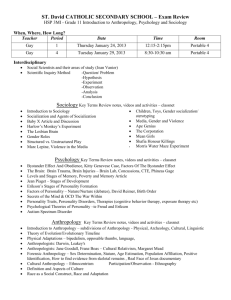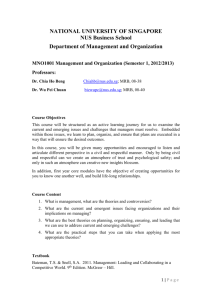Click here for HSP3C1 Course Outline
advertisement
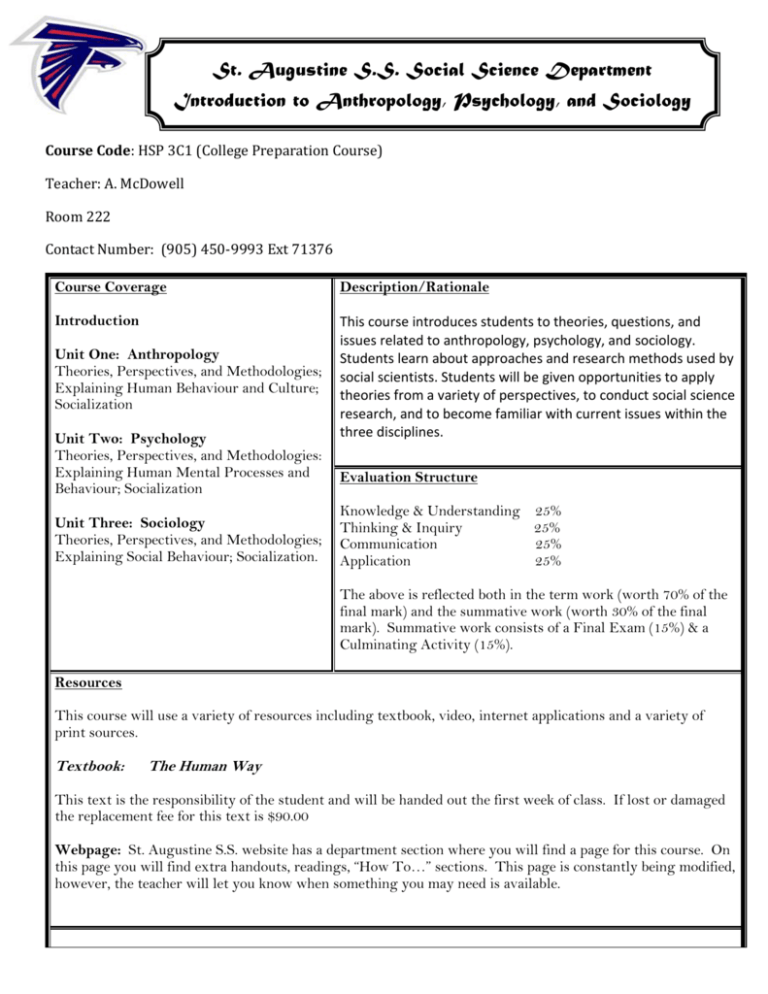
St. Augustine S.S. Social Science Department Introduction to Anthropology, Psychology, and Sociology Course Code: HSP 3C1 (College Preparation Course) Teacher: A. McDowell Room 222 Contact Number: (905) 450-9993 Ext 71376 Course Coverage Description/Rationale Introduction This course introduces students to theories, questions, and issues related to anthropology, psychology, and sociology. Students learn about approaches and research methods used by social scientists. Students will be given opportunities to apply theories from a variety of perspectives, to conduct social science research, and to become familiar with current issues within the three disciplines. Unit One: Anthropology Theories, Perspectives, and Methodologies; Explaining Human Behaviour and Culture; Socialization Unit Two: Psychology Theories, Perspectives, and Methodologies: Explaining Human Mental Processes and Behaviour; Socialization Unit Three: Sociology Theories, Perspectives, and Methodologies; Explaining Social Behaviour; Socialization. Evaluation Structure Knowledge & Understanding 25% Thinking & Inquiry 25% Communication 25% Application 25% The above is reflected both in the term work (worth 70% of the final mark) and the summative work (worth 30% of the final mark). Summative work consists of a Final Exam (15%) & a Culminating Activity (15%). Resources This course will use a variety of resources including textbook, video, internet applications and a variety of print sources. Textbook: The Human Way This text is the responsibility of the student and will be handed out the first week of class. If lost or damaged the replacement fee for this text is $90.00 Webpage: St. Augustine S.S. website has a department section where you will find a page for this course. On this page you will find extra handouts, readings, “How To…” sections. This page is constantly being modified, however, the teacher will let you know when something you may need is available. Evaluation Policy Students will be assessed and evaluated according to the work produced and skills displayed. Methods of providing feedback will include assessing work in progress & evaluating completed assignments, tests, cooperative learning activities, simulations and presentations. Peer & self evaluations may also be utilized. Students will be evaluated according to the four categories and the skills they represent: Level 1 50-59% Limited display of knowledge, skills and ability to apply concepts Level 2 60-69% Some success in displaying knowledge, skills and application of concepts Level 3 70-79% Considerable display of knowledge, skills and application of concepts Level 4 80-100% Thorough understanding of concepts and ability to communicate, think creatively & apply concepts Knowledge: Requires the remembering of previously learned materials and to understand them through tests, quizzes, handouts, presentations, probing questions, debates, brainstorming, interviews, and culminating activities. Thinking: The ability to break down material into parts so that its structure may be understood which includes displaying the ability through tests, questions, articles, presentations, outlines, essays, posters, case studies. Communication: Uses a variety of forms of communication in a logical & organized manner to communicate for different audiences & purposes through formal writing (annotated bibliography, essay, interview questions/survey), tests, oral presentations, projects, group work. Application: The ability to use learned material (theories/ideas) in new, concrete situations. This includes: formal writing, oral presentations, projects, tests, case studies.
